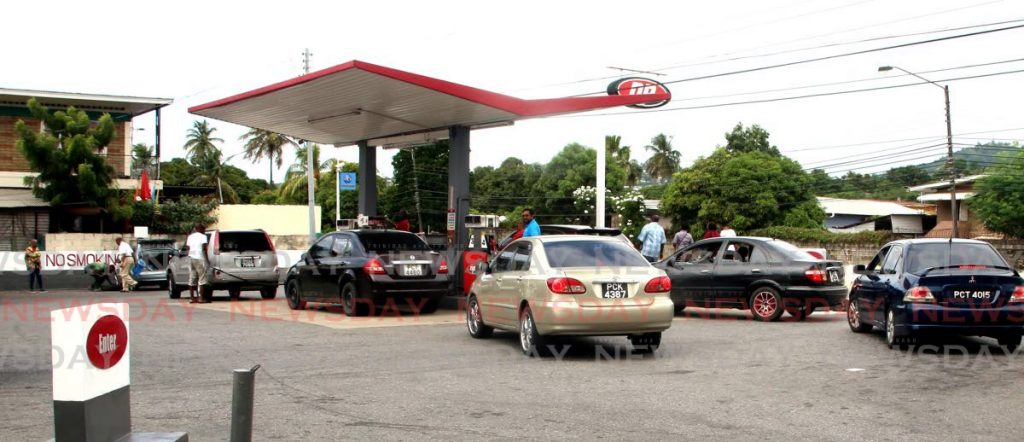Young: Government to protect drivers from costly gasoline

Amid fuel-price liberalisation at gas stations, the Government will protect drivers by keeping prices within a band of values, Energy Minister Stuart Young said in Parliament on Friday.
He accused the Opposition of "shenanigans, theatrics and drama" over gasoline price liberalisation, and said drivers could benefit from global fluctuating prices and local competition.
"It is definitely not a taxation effort as was suggested by the previous speaker (Oropouche West MP Davendranath Tancoo.)"
Young said the new policy removes fixed retail margins, such as in the US and UK.
"We are allowing at the pumps the retailers to move their prices. That is only going to be allowed once per month, at the beginning of the month.
"The Ministry of Energy will put out circulars saying these are the prices and the ranges within which fuel can be sold at the pump with respect to super, premium and diesel."
Young said the existing prices of LPG and CNG would be maintained.
"We are going to keep wholesale margins fixed.
"Every month the Ministry of Energy will post the wholesale market based price of premium gasoline, super gasoline and diesel, on the first day of each month."
Young said the wholesale price would be calculated from the ex-terminal price plus the gross wholesale margin and the fuel levy if applied, plus VAT.
He said for these fuels there would no longer be a fixed retail price and retail margin, but the gross wholesale margin for all petroleum products would continue to be fixed.
"So the Government would maintain a level of control over what the dealers may do at the pump."
He said retailers at each fuel station would set their retail margin.
"This is really where the population will be affected." The NP and Unipet stations can determine, within a fixed formula, what price they will charge at the pump.
"So what was said by the previous speaker, it is not a monopoly."
He said if world oil prices go down, local consumers will be able to benefit, but if prices go up the Government may maintain a buffer to protect the population.
Young first said if the world fuel price rises over US$65, there will be no fuel levy in TT.
"The Minister of Energy after consultation with the Minister of Finance will have a decision to make as to whether to apply a fuel levy at all."
He later elaborated. "The fuel levy was created as advised by the Ministry of Finance as a means to maintain a stream of revenue to Government in a liberalised environment to be equal to the surplus on petroleum products that may have been generated in a subsidised environment."
If the oil price is under US$45, the levy will be equal to the surplus generated at that level. From US$45-US$65, the levy will be varied according to a schedule. No levy will be taken if gasoline is above US$65, he said. Fuel will be imported by Paria and sold to NP and Unipet, which in turn would sell to gas stations to sell to drivers, a profit margin added at each stage.
Young said that to protect the population, the Government will set a retail margin ceiling equal to a 50 per cent increase in the current retail margins.
"What we expect to see is different gas stations selling fuel at different prices ,but within a band, and consumers will be able to get the benefit of the fluctuating oil prices on the global market, and also hopefully the benefit of competition by the various gas station owners."
The margins can be revised by the Ministries of Energy and Finance, after monitoring.
Young also vowed to deal with the scourge of illegal quarrying, which he said the People's Partnership government had never tackled.
"In fact the evidence is that it took off in the period 2010-2015." He said fines will be increased by 200 per cent for those involved in illegal quarrying, plus increased prison sentences.
Further, for the first time ever, any person using material illegally quarried will be banned from government construction projects. Young vowed further legislation against illegal quarrying.
He said he had done an aerial survey of the north coast, exposing illegal quarrying that cannot be seen at ground level from the roadside. "Let the criminals be aware that we are coming after their illegal quarrying and their ill-gotten gains."


Comments
"Young: Government to protect drivers from costly gasoline"